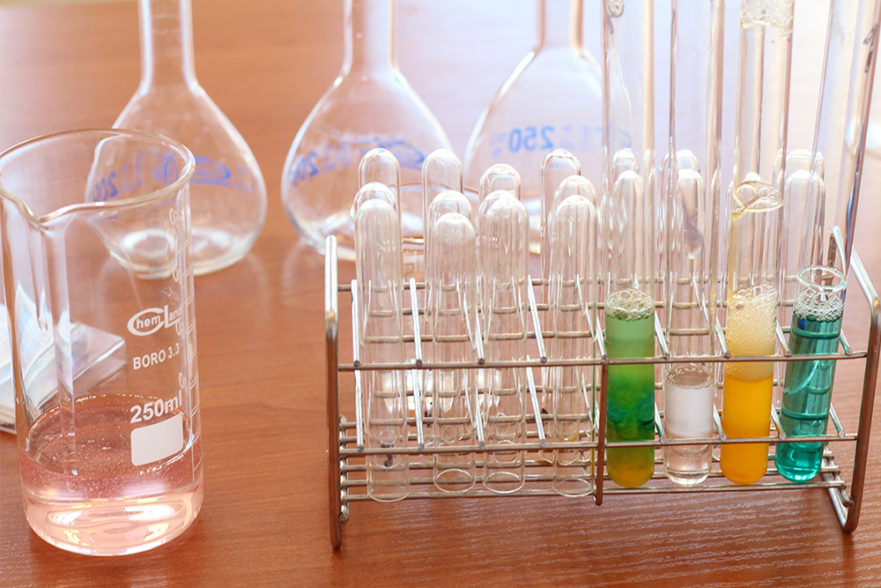What Are Solvents?
Solvents are chemicals that can dissolve, suspend or extract other substances, generally without causing a change in the chemical nature of either the solvent or other substance being treated.
Solvents can be organic, meaning they contain carbon – the basic building block of life, or inorganic meaning they do not contain carbon. As such, water (consisting of hydrogen and oxygen) is classed as an inorganic solvent, whereas hydrocarbons and oxygenated solvents are examples of the organic variety.
There are many different types of solvents with contrasting physical and chemical properties. This means that they can be applied into uses, and can be found in a wide variety of products ranging from cleaners & degreasers, paints and adhesives, to personal care products (shampoos, face creams) and pharmaceuticals.
Forms of Solvent:
Organic solvents are classified by their chemical structure, of which there are three main types. These are:
Hydrocarbon Solvents:
Aliphatic and aromatic hydrocarbons
Oxygenated Solvents:
Alcohols, aldehydes, ketones, glycol ethers, esters, & glycol ether esters
Halogenated Solvents:
Chlorinated & brominated hydrocarbons
Common Uses Of Solvents:
Solvents are found all around us, and are used in a wide variety of applications. Thousands of manufacturers and production facilities, and millions of workers rely on solvents to provide the solutions to their manufacturing needs, allowing for increased through puts or in many cases, just for processes to operate safely.
Many of the products we use and rely on every day, ranging from pharmaceuticals to industrial coatings, would not perform as well or even be available at all without the effect of solvents. With a continued commitment from industry to improve solvents functional and environmental characteristics, more applications are always in the pipeline.
Typical Solvent Applications:
The broad spectrum of solvents with differing chemical and physical properties means that there are a myriad of applications within which they can be used. Generally, formulators work on the “like for like” principle (i.e. – similar forms of materials will dissolve each other), although combinations of solvents are often used to obtain the right balance within an application.
Typical Solvent Applications Include:
- Pharmaceuticals
- Cosmetics
- Agrochemicals
- Paints & Coatings
- Cleaners & Degreasers
- Inks
- Automotive
Pharmaceuticals
From penicillin to Viagra, the manufacture of a large number of everyday drugs would be impossible without the use of solvents in the manufacturing process.
Not only do solvents help solubilise the active materials needed to make the pharmaceuticals, they are often used to remove impurities formed in the reactions, leaving the pure forms of the drugs we get treated with today.
Cosmetics
Solvents are involved in the formulation of a myriad of cosmetic materials from baby oil and face creams, to nail varnish, mascara, and hair sprays.
None of these would be available without the use of solvents in their manufacture.
Agrochemicals
Crop protection is an essential part of modern farming, required to produce the vast amounts of food required to feed an ever growing population.
Solvents are an important part of the production and application process of both fertilizers and crop protection formulations.
Paints & Coatings
In paints or coatings, solvents dissolve or disperse different components of the formulation such as the pigment and resin, allowing the final product to have the desired consistency. Upon application of the paint, the solvents evaporate allowing the resins and pigment to form the protective coat or film, and dry off.
Printing & Inks
Many of the printing inks used to produce everything from our daily newspapers and magazines, to the labels and packaging used on our food and other consumer goods, rely heavily on solvents in order that the text and designs can be applied properly and stay in place.
Within the ink formulations, the solvents are used to control the product viscosities meaning that just enough of the ink is allowed to flow. As in the case of paint formulations, the solvents allow for the best possible drying times meaning that they can be used on today’s high speed printing presses.
Automotive
Solvents assist modern motor vehicles in more ways than you may think. As well as forming parts of the formulations used in cooling the engines and keeping the brakes operating, solvents also play a large part in ensuring that you can see where you are going. Modern screen washes contain solvents that help in dissolving and lifting dirt, grime and dead bugs from your windscreen allowing for them to be wiped away with ease.
These solvents also allow for the wash formulations to still work during the winter months when the colder temperatures would ordinarily freeze a formulation based only upon water and a surfactant.
Trust Our Solvent Experience:
Maratek Environmental has been in solvent business for over 30 years and we continue to grow and adapt to an ever-changing printing industry. As market leaders in solvent recycling and recovery for the last 10 years, we take pride in providing our customers throughout North America with reliable, innovative, and cost saving recycling solutions. Maratek recently purchased one of the largest manufacturers of solvent equipment – Omega Recycling Technologies
The Maratek Solvent Saver is the proud recipient of the 2005 InterTech Award for Technological Excellence.
For more information, or a free solvent waste sample lab test and payback analysis of how you can save on your solvent recycling, contact us at 1 800 667-6272 or visit our website at www.maratek.com.
Maratek corporate offices are located in Bolton, Ontario; about 15 minutes north of Toronto.

